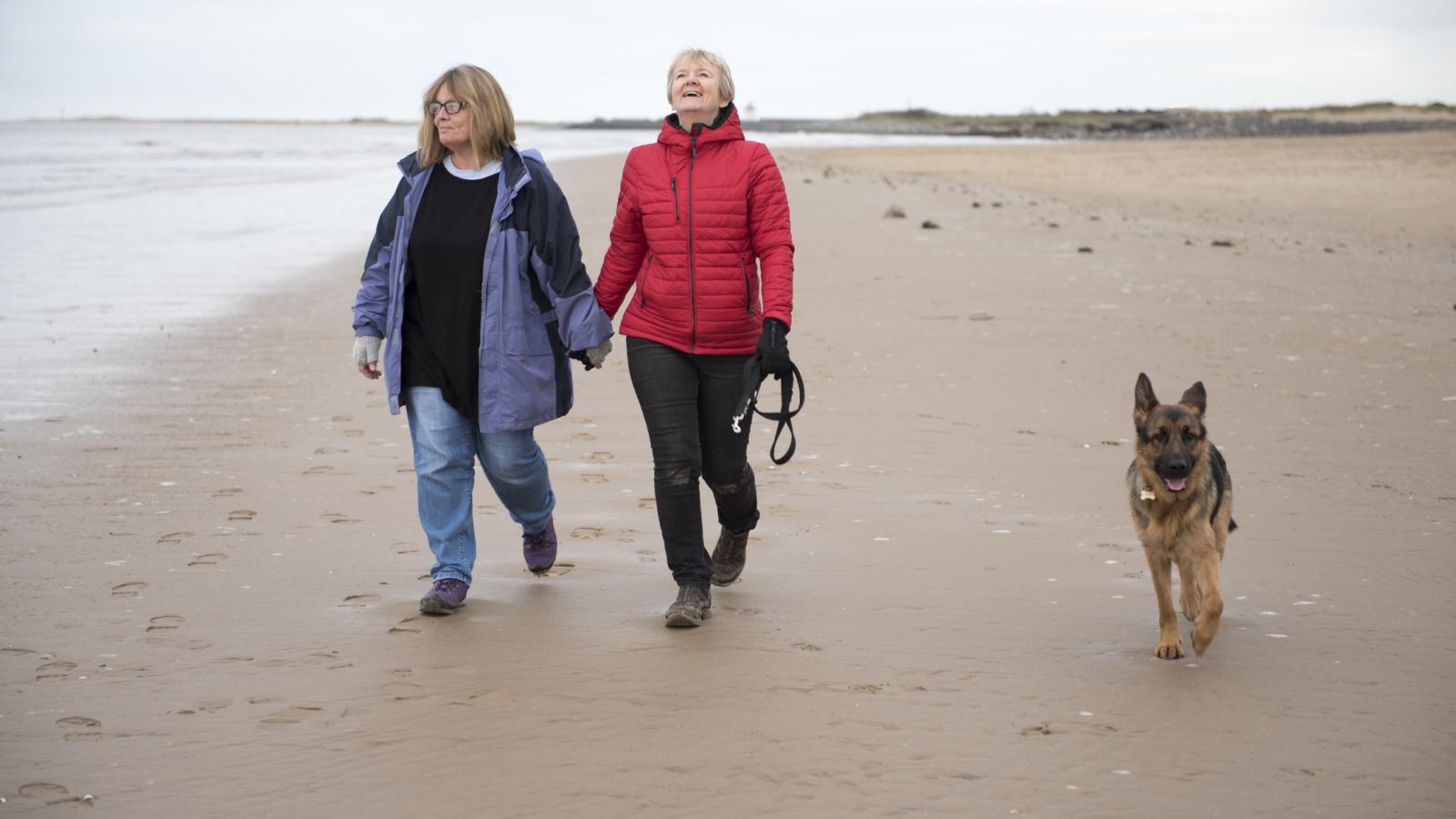Breathlessness and your daily routine

Breathlessness may prevent you from doing things you normally do. Many patients become more breathless when they exert themselves. Some patients are breathless even at rest.
Here are some ways to help you in everyday life:
- Pace yourself. Plan plenty of rest before you exert yourself and in between tasks.
- Think about what you need to do and prioritise. Do not worry if you cannot get everything done.
- Ask for help when you need it.
- You will have good and bad times of the day, so plan your activities for good times.
- It can be helpful to keep a diary of your day so that you know when you are likely to feel breathless.
- Allow yourself more time to do tasks than it would usually take. This will take the pressure off.
- Sit down as much as possible. For example, when washing or dressing.
- Avoid bending down or holding your breath when stretching.
- Use furniture or aids to lean on.
- Be organised. Have the phone or home oxygen close by throughout the day.
Personal grooming
- Wear loose clothing, as it is easier to put on and less restrictive.
- Sit down as much as possible when you are washing and dressing yourself.
- Wash yourself in warm water not hot. Steam rises from hot water and this could make it more difficult to breathe.
- Organise yourself so all your soaps, lotions, towels and clothes are close by.
The occupational therapist in the hospital or in the community can visit your home to advise you. For example, putting up a grab rail in your bathroom might be helpful.
Housework
- Know your limits and ask for help.
- Plan as much as possible. For example, avoid making several trips up and down the stairs.
- Use a trolley or bag to carry items around the house.
- Sit down as much as possible when doing tasks.
- Lean on furniture or aids as you move around.
The occupational therapist can also help you to adapt at home. There are many pieces of equipment to help you in your home. For example, walking aids, grab rails and pick-up sticks. If needed, your doctor can refer you to an occupational therapist or a physiotherapist.
Shopping
- Bring a friend or ask the staff to help you with your shopping.
- Use a shopping trolley as a support.
- Use aids for less mobile shoppers, such as a mobility scooter.
- Bring a trolley or backpack to avoid carrying bags in your arms.
- Shop online or get your shopping delivered to your home.
Sleeping
- Try to have a regular routine at bedtime.
- Use a fan to help you relax at night. By moving the air around you, it can improve your breathing.
- Try to stay upright in bed and avoid sleeping lying down.
For more information on how to manage tiredness (fatigue), visit a Daffodil Centre, contact our Support Line on 1800 200 700 or download a copy of our booklet, Coping with Fatigue:
Sexual activity
- Plan ahead and rest beforehand.
- Stay relaxed and find a position that is comfortable for you.
- Talk to your partner beforehand. Tell them your concerns and remember intimacy should be enjoyable and fun.
Eating and drinking
- Drink plenty of fluids throughout the day to keep your mouth moist.
- Eat slowly.
- If your mouth is dry, especially from oxygen therapy, suck sweets to help produce saliva.
The medical social worker may be able to help with any of the above activities. They can help you get different benefits and services that you are entitled to due to your illness. They can also help with any emotional distress you might have.
For more information
Phone
1800 200 700



